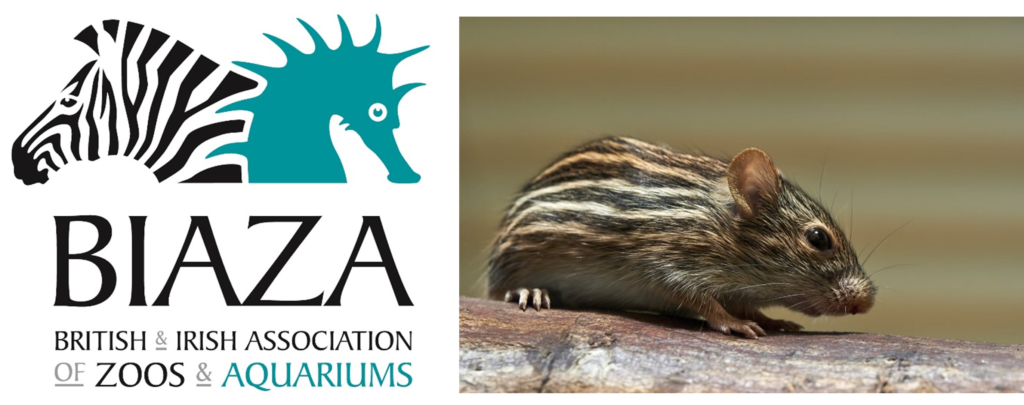The annual British and Irish Association of Zoos and Aquariums (BIAZA) awards celebrate the achievements of zoo associations in fields such as Education, Conservation and Research. This year, Durrell Wildlife Conservation Trust has received a silver BIAZA award for research exploring global hotspots of, and research priorities for, the world’s Rodentia and Eulipotyphla. The project titled “Scaling up small-mammal conservation: setting global priorities for understudied and overlooked species”, was led by the Small Mammal Specialist Group (SMSG) with partners at Durrell – who host the SMSG Co-Chair and Programme Officer roles – as well as Texas A&M University, the Zoological Society of London and Re:wild.
 Small mammals exhibit remarkable functional, morphological and phylogenetic diversity. They include some of the world’s most primitive mammal taxa and can be found in virtually every terrestrial ecosystem. Yet, despite this, they are frequently overlooked in conservation science: research confirms that the poorly studied and largely ignored mammal species are those present in countries with limited scientific capacity, those that have been described only recently, or those that are small in size.
Small mammals exhibit remarkable functional, morphological and phylogenetic diversity. They include some of the world’s most primitive mammal taxa and can be found in virtually every terrestrial ecosystem. Yet, despite this, they are frequently overlooked in conservation science: research confirms that the poorly studied and largely ignored mammal species are those present in countries with limited scientific capacity, those that have been described only recently, or those that are small in size.
The SMSG’s award-winning project has therefore been an important step forward for the small mammal field. Using information gathered from the IUCN Red List, the aim of this project was to identify small mammal hotspots across the globe where conservation actions could have the greatest impact. The work focuses on the orders Eulipotyphla (e.g. hedgehogs, shrews, moles and solenodons) and Rodentia (e.g. rats, mice, squirrels, beavers and porcupines) which, together, make up nearly half of all living mammal species.
Project outcomes
In total, 76 of 454 known eulipotyphlan species and 324 of 2,231 known rodent species are classified as globally threatened on the IUCN Red List. By analysing the distribution and richness of these groups, multiple hotspots were identified: for eulipotyphlans, three regions (Sri Lanka, Western Ghats and Cameroonian Highlands) were found to contain disproportionately more at-risk species than expected. For rodents, six regions (in Mexico, Cameroonian Highlands, Southwestern Ghats, Sri Lanka, Malaysia and Indonesia) are inhabited by disproportionately more at-risk species than would be expected.
The researchers further reported that much of the globe’s small mammal diversity does not fall within protected areas. Protected areas are considered “the single most important conservation tool” yet are very rarely set up with small mammals in mind. In fact, five eulipotyphlans and 44 rodents were found to occur in regions completely outside of any protected site.
The study additionally highlighted regions with the highest numbers of ‘data deficient’ small mammals, i.e. species for which insufficient population or distribution information is available to make a Red List assessment. These areas – within Central and South America – require urgent research attention.
Moving forward, the SMSG have used these results to inform action on the ground. The SMSG recently hosted a small mammal workshop in one of the identified priority regions, Mexico, with plans to replicate this in more key regions in the future. Such workshops bring together experts from government, academia, NGOs and other stakeholders, facilitating the development of prioritisation methods and species action plans.
The recognition of this work in the BIAZA annual awards is a great achievement for the SMSG and shines a light on the group’s contributions to raising the profile of, researching and conserving small mammals – congratulations to everyone involved!
You can read the full research paper here.
Author: Abi Gazzard (SMSG Programme Officer)





